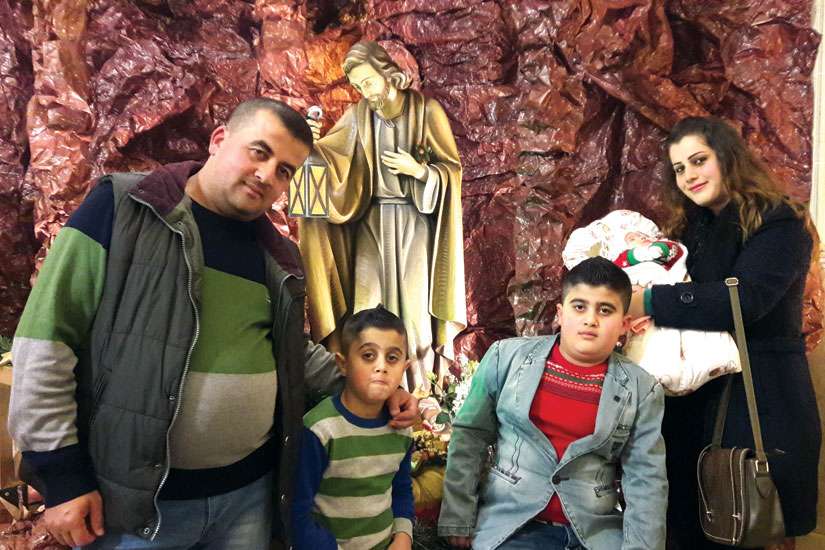St. Bernadette’s parish was first told that the Hano family was set to arrive before Christmas last year but as months went on, the arrival date was pushed back further.
“This (family) has been told, ‘You’ll be there in time for Christmas. Oh, no, you’ll be there in time for Easter. Oh, no, now I believe it’s the first of July,’ ” said Fr. Keith Wallace, St. Bernadette’s pastor. “We have an apartment rented for them already... We are leasing that apartment right now and it’s empty.”
Wallace has been writing letters to the Office of Refugees in the Archdiocese of Toronto (ORAT) and the Canadian immigration offices to ask what is taking so long.
“They just give us the company reply, so they just send us (replies) saying, ‘Yes, the file is here. We’re working on it,’ ” said Wallace. “Sometimes, it’s a standard... It’s like a template. So it’s like, did you even read my letter?”
Wallace said the parish has been very patient, but now is the time to act. The parish is planning to host a prayer gathering in front of Minister of Immigration John McCallum’s office in Markham on May 25 to appeal to him for some urgency on the matter.
“I firmly believe there is a political solution,” said Wallace. “With political will, it can be done and it’s not being done.”
Wallace said the main concern is that the parish’s sponsored family has been sent to the back of the line as a result of the Canadian government’s push to prioritize the resettlement of 25,000 Syrian refugees.
Since the sponsorship committee applied to sponsor the family of four in October, the family welcomed a newborn son in November. Wallace said that because of the delays, the committee is worried about the kinds of conditions the three boys are being raised in at a refugee camp in Jordan.
ORAT director Martin Mark said the parish committee must remain patient. A typical resettlement can be anywhere from a 12- to 18-month process. Compared to resettlement programs in other countries, the wait is reasonable.
“In other parts of the world, the average processing time is about three, four, five years,” said Mark. “In the process of around one, one-and-a-half years we usually try to educate parishioners to be patient because that is still around standard service.”
In terms of the parish committee’s concern about Iraqi refugees, Mark admitted that the ORAT office was also concerned about the prioritization of Syrian refugees.
“Definitely there was a shift,” said Mark. “Until Feb. 29, we realized that the priority of the cases was mostly Syrian cases which is understandable because the government wanted to meet the deadline of processing of the 25,000 Syrians. But starting March 1, our experience is that they started to catch up with other cases.”
Mark said that Canadian embassies, particularly in Jordan, Lebanon and Turkey, are experiencing a backlog of cases but they are processing all cases equally.
There could be a number of unexpected causes to the delays that the parish has been experiencing, he said.
Earlier this month, McCallum announced that the government is recruiting existing and retired staff from the immigration department to head overseas this month to work through the hundreds of applications for private sponsorship groups.


